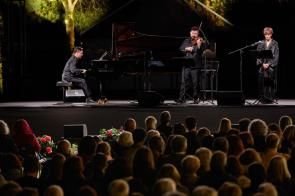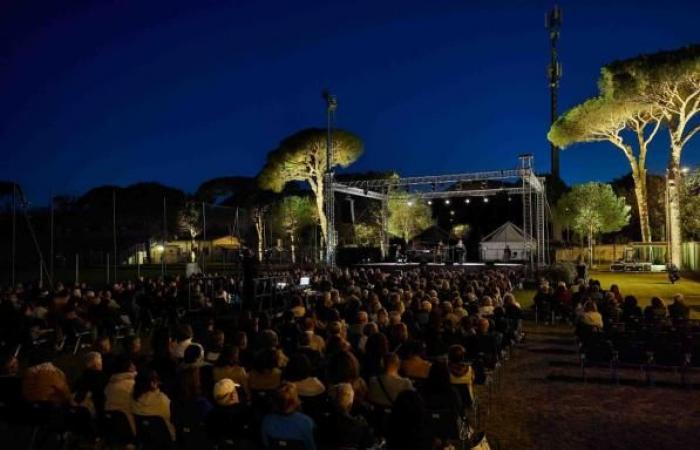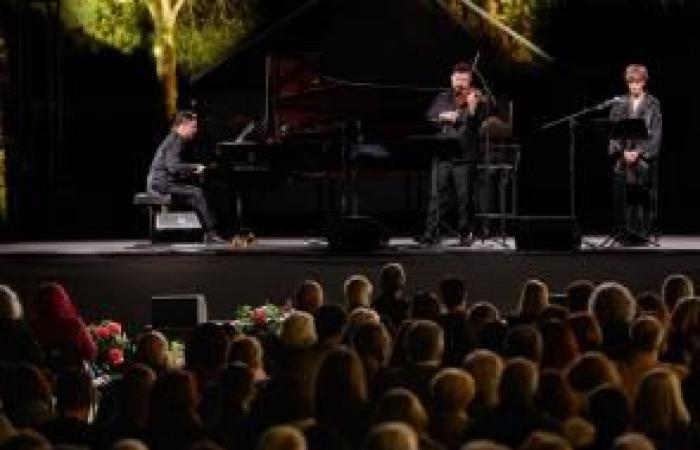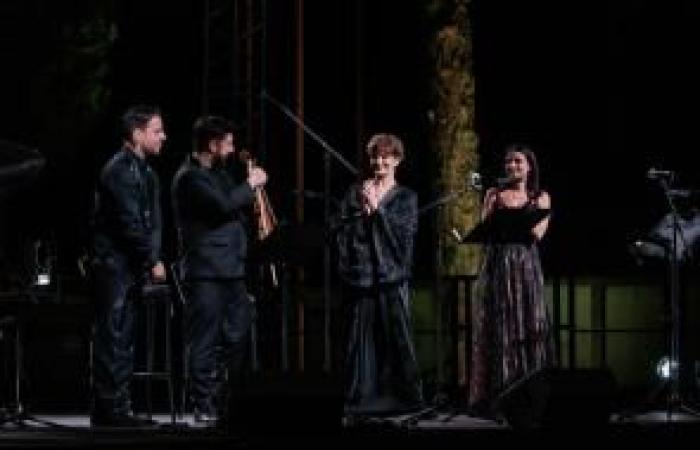The fragile and, at the same time, proud teenager who dreams of absolute love. The jealous and devoted diva, ready to do anything to save her man. The fickle and passionate girl, lover of comfort and riches. The haughty, cold and bloodthirsty princess, who shuns falling in love. These are just some of the heroines immortalized by Giacomo Puccini. To commemorate the 100th anniversary of his death, the Ravenna Festival offers an interesting and original tribute, placed within the special project Trebbo in music 2.4event conceived ad hoc for the “city of salt” of Cervia – Milano Marittima, now in its fifth edition in 2024: the show First women. As per the tradition of the event, the evening, coordinated and created by Elena Marazzitatakes place in the frame en plein air of theArena Stadio dei Pini, under a clear starry sky illuminated by a quarter moon, lulled by the chirps of seagulls. Protagonist of this monologue, a sort of reading musical lasting approximately eighty minutes, she is one of the most acclaimed Italian actresses and directors, who has worked in films by filmmakers such as Paolo Virzì, Gianni Amelio, Nanni Moretti, Pupi Avati: Laura Morante.
Narrator with a warm and enveloping voice, modulated according to the character and the situation, rich in accents and intentions, as well as with a magnetic and austere stage presence, Morante is also the author of the lyrics, a free reworking taken from the librettos of four Puccini operas: Madame Butterfly, Tosca, Manon Lescaut And Turandot. With clear diction and carved in stone, the actress impersonates, from time to time, four heroines of melodrama, identifying with them with transport and credibility, thanks also to the beautiful monologues, rich in poetry and pathos. The geisha Cio-Cio-San is rendered with subtle sweetness, offering the word with delicate modesty, only to then assume a prouder frown in the suicide scene; Floria Tosca, slave to the beast of jealousy, is faced with intensity, fully conveying the strong-willed and at the same time unstable nature of the Roman singer; of Manon Lescaut, depicted as thirsty, cold and delirious in the desert, after being arrested as a “thief and whore”, her passionate side is underlined above all; Turandot is, finally, portrayed as a sort of Chinese Penthesilea, a princess with a cold heart, chaste and inviolable, initially hieratic and untouchable, gradually more and more vulnerable.
In this journey to discover the psyche of Puccini’s women, words are combined with music: each single text is in fact introduced and interspersed with an opera piece; the musical part is entrusted to three young and talented artists. The soprano Francesca De Blasi he exhibits an overall homogeneous vocality, which has its strong point in a bright medium register and soaring and pointed high notes, supported by a good technique and chiseled and iconic phrasing. The aria “Un bel dì, vedore” is tinged with melancholy tenderness and burning hope; “Vissi d’arte”, also proposed as an encore at the end of the evening, is sung with vehement musicality; Liù’s death “Tu che di gel sei cinta” is rendered with poignant delicacy and immaculate timbre. De Blasi is accompanied on the piano by Antonello d’Onofrio, standing out for its persuasive and clear touch, the cleanliness of the sound, the adherence to the score and the emotional rendering of the pieces. The pianist also performs the famous “Intermezzo” from Manon Lescaut and, in instrumental form, the “Chorus with closed mouth” from Madame Butterfly and the two tenor arias “E lucevan le stelle” and “Nessun dorma”. In the four pieces, the violinist’s mastery, transport and virtuosity also shine Davide Alognain a calibrated and successful dialogue between the two musicians, in which the nuanced and clear sounds of the piano and the more vibrant, warm and lashing sounds of the violin are perfectly combined, the latter called to give voice to the dancers, Mario Cavaradossi and Calaf .
At the end, a warm success from an extremely varied and, to be honest, at times undisciplined audience. In summary, First women it presents itself as a poetic, engaging and emotional show, a not at all obvious commemoration of the centenary of Puccini’s death: the hope is that, in the coming months, it will also be proposed in other Italian squares. 


Ravenna Festival 2024 – Il Trebbo in music 2.4
FIRST WOMEN
text edited by Laura Morante
music by Giacomo Puccini
ideation by Elena Marazzita
Acting voice Laura Morante
Soprano Francesca De Blasi
Violin Davide Alogna
Piano Antonello d’Onofrio
Cervia – Milano Marittima,
Arena Stadio dei Pini, 13 June 2024

Photo: Zani Casadio

Photo: Zani Casadio

Photo: Zani Casadio











